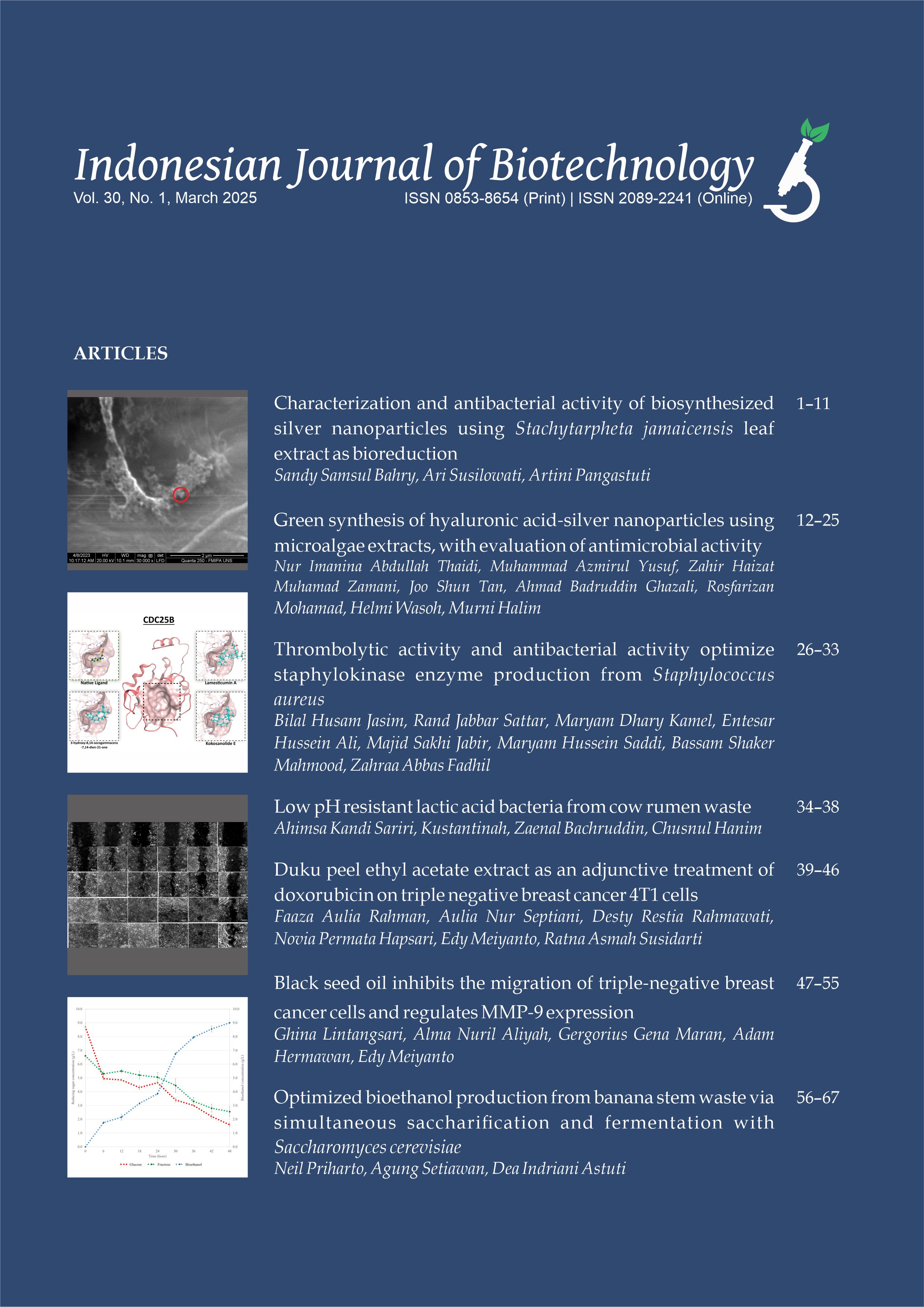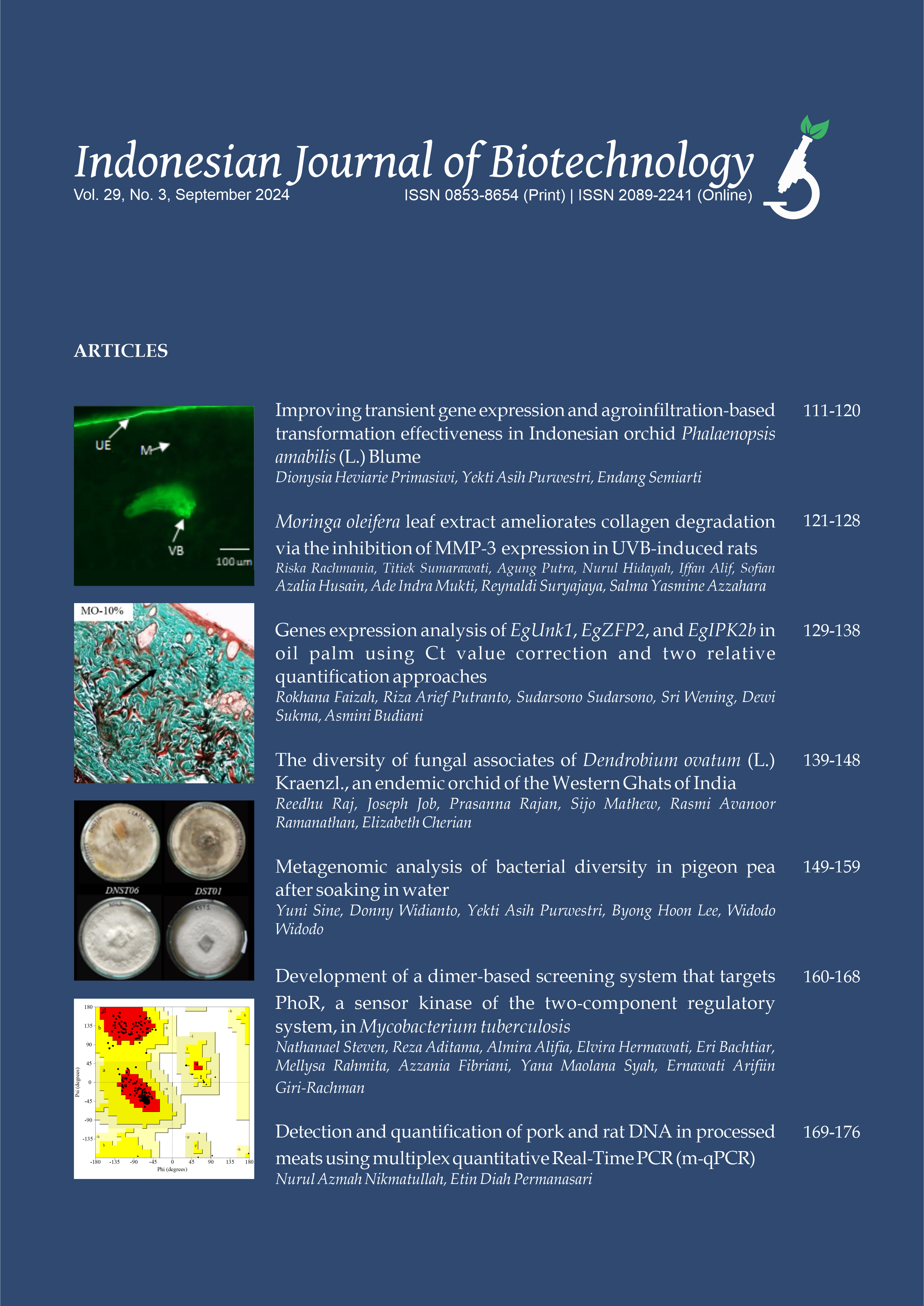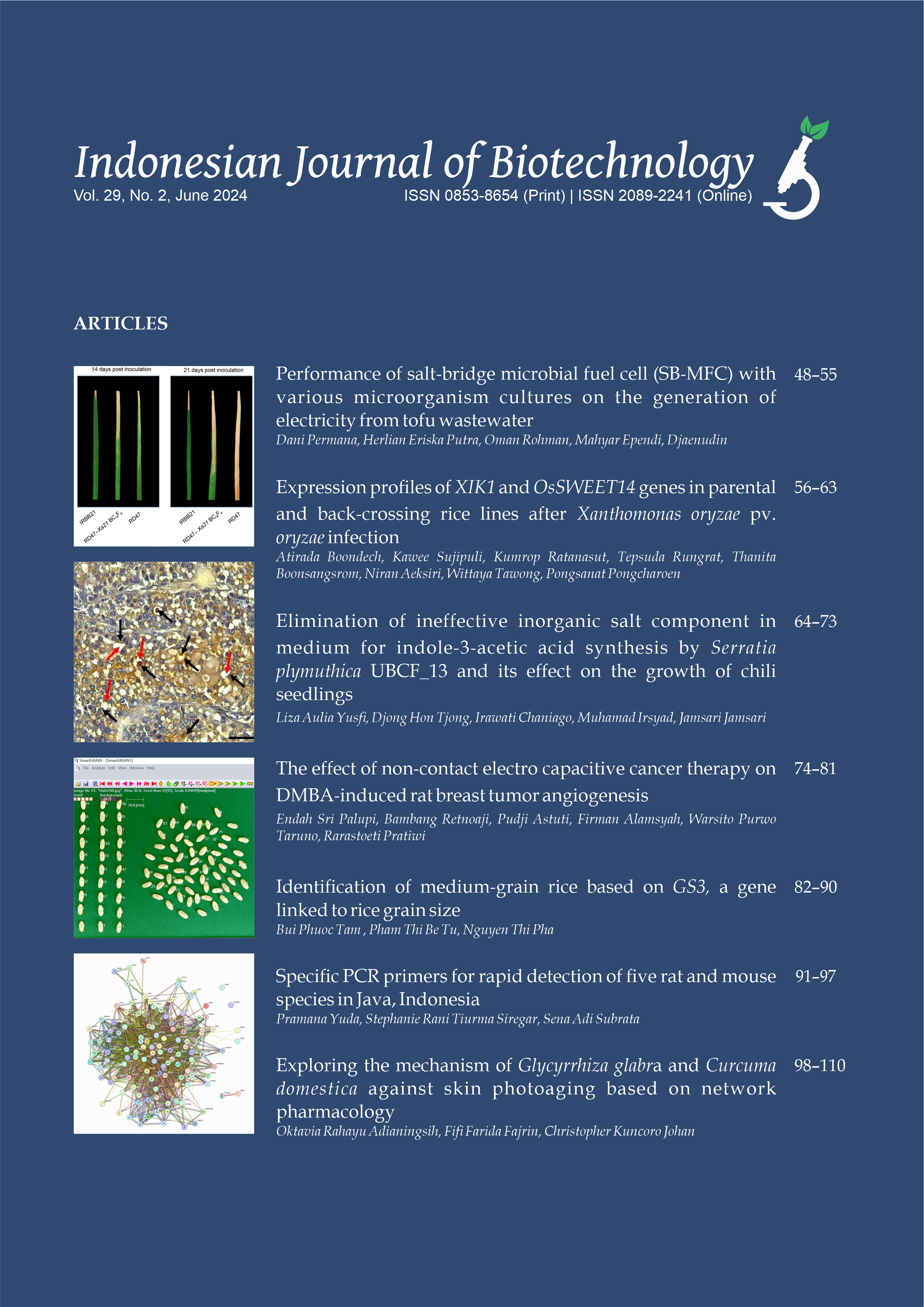Biochemival Characterization of an Antibactrial Glycoprotein from Achatina fulica ferussac Snail Mucus Local Isolate and Their Implication on Bacterial Dental Infection
Titiek Berniyanti(1*), Edy Bagus Waskito(2), S. Suwarno(3)
(1)
(2)
(3)
(*) Corresponding Author
Abstract
Snails crawl over a variety of potentially contaminated surfaces and their foot is the primary site of entry for
pathogens, parasites and a range of opportunistic organisms, so it is a little wonder that they must have a defensive
system to protect them. The mucus secreted on the body surfaces of mollusks is known to play crucial role in
locomotion, feeding, osmoregulation, reproduction and protection of epithelial surfaces. The snail mucus also
contains Glycoaminoglycans (GAGs) which are complex polysaccharides that participate in the regulation of
physiological processes through the interactions with a wide variety of proteins. GAGs, such as heparin, serve as key
to biological response modifiers, in example for acting asa a target for pathogen and parasitic factors for attachment,
invasion, and immune system.
For years, it has been known that the mucus secretions from snails Achatina fulica ferussac local isolate can be used
as a medication, and even empirically it is used to treat infected teeth tahat is suffered by people in rural area. The
antibacterial factor was surveyed in the aqueous extract and the mucin fraction of snail Achatina fulica ferussac, and
they exhibited positive antibacterial for Gram-positive, Escherichia coli and Gram negative, Streptococcus mutans. In
the following study, it has been proved that an antibacterial content in the mucus was a Glycoprotein. It was
composed of two subunits of Molecular Weight (MW) 71-73 kDa. The GelCode Glycoprotein Staining Kit detected
glycoprotein sugar moieties in polyacrylamide gel and on nitrocellulose membrane, while the glycoprotein
carbohydrate estimation kit detected glycoprotein and estimated carbohydrate content. The glycoprotein content
was 4.537 ± 0.876 for carbohydrate and 6.420 ± 1.242 for protein.
Keywords : characterization, glycoprotein, Achatina fullica Ferussac snail mucus, galur Jawa, antibacterial
factor
pathogens, parasites and a range of opportunistic organisms, so it is a little wonder that they must have a defensive
system to protect them. The mucus secreted on the body surfaces of mollusks is known to play crucial role in
locomotion, feeding, osmoregulation, reproduction and protection of epithelial surfaces. The snail mucus also
contains Glycoaminoglycans (GAGs) which are complex polysaccharides that participate in the regulation of
physiological processes through the interactions with a wide variety of proteins. GAGs, such as heparin, serve as key
to biological response modifiers, in example for acting asa a target for pathogen and parasitic factors for attachment,
invasion, and immune system.
For years, it has been known that the mucus secretions from snails Achatina fulica ferussac local isolate can be used
as a medication, and even empirically it is used to treat infected teeth tahat is suffered by people in rural area. The
antibacterial factor was surveyed in the aqueous extract and the mucin fraction of snail Achatina fulica ferussac, and
they exhibited positive antibacterial for Gram-positive, Escherichia coli and Gram negative, Streptococcus mutans. In
the following study, it has been proved that an antibacterial content in the mucus was a Glycoprotein. It was
composed of two subunits of Molecular Weight (MW) 71-73 kDa. The GelCode Glycoprotein Staining Kit detected
glycoprotein sugar moieties in polyacrylamide gel and on nitrocellulose membrane, while the glycoprotein
carbohydrate estimation kit detected glycoprotein and estimated carbohydrate content. The glycoprotein content
was 4.537 ± 0.876 for carbohydrate and 6.420 ± 1.242 for protein.
Keywords : characterization, glycoprotein, Achatina fullica Ferussac snail mucus, galur Jawa, antibacterial
factor
Full Text:
PDFArticle Metrics
Refbacks
- There are currently no refbacks.
Copyright (c) 2015 Indonesian Journal of Biotechnology









